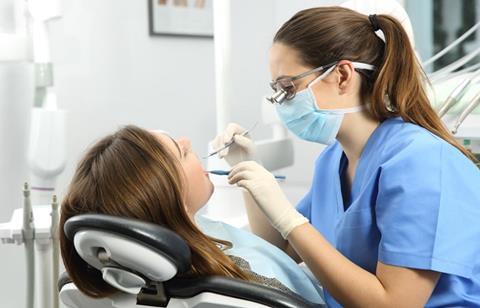
What are group dental plans?
Dental plans are a type of insurance or cash plan that specifically cater for oral health, helping staff afford regular dentist visits for preventative and routine care, such as accident and emergency cover, crowns, implants and fillings, as well as larger issues such as treatment for oral cancer.
Dental cover can either be provided in the form of traditional insurance, where staff can make a claim for the diagnosis and treatment of conditions that develop after taking out the policy, or a health cash plan, which provides a pot of money to claim back on everyday expenses such as dental check ups.
Dental care can be an area that falls by the wayside, particularly when rising cost pressures cause employees to tighten their budgets. However, forgoing routine care or leaving minor problems unchecked can mean much more disruptive and expensive intervention is needed down the line, including likely time off work. Paying for group plans can, therefore, have a significant effect on productivity, wellbeing, and sick leave for an employer.
According to Health Shield, cash plans are a high utility product, with the average member claiming eight times per year, often for amounts at the lower end, around £50, for check-ups.
What are the cost implications?
Employers have various options around paying for dental plans. The business can opt to fully fund the insurance, or it can introduce these as optional employee-paid benefits, including using salary deduction arrangements and individual direct debit options.
For a health cash plan, where a monthly fee entitles staff to claim back money on routine dental expenses, up to a certain limit, employers might be looking at an average premium of £90 to £100 per employee per year. However, it is possible to reduce this to approximately £50, to get a more basic package.
These prices are not guaranteed, as they may go up if employees engage more. However, this should be balanced with the return-on-investment factors, such as having healthier staff and, therefore, likely lower sickness absence costs.
The cost for insurance is likely to be higher, because this is typically used to cover major health issues. However, nowadays these policies will come with value-add elements, such as virtual GP access, designed to manage absence and reduce an employee's need to claim by improving their everyday dental health.
Employers are able to negotiate packages and deals with their insurer, and there are economies of scale, where larger organisations are likely to get a discounted deal, making this benefit somewhat less cost-effective for smaller employers.
Are there any potential tax issues?
Both insurance cover and cash plans are taxable benefits, but the tax status applies to the premium paid to secure the cover, therefore, any claim made under the policy does not count as taxable.
It is possible to access plans at a cost of below £50 per employee per year, which would shift its tax status to 'trivial' in the eyes of HM Revenue and Customs (HMRC), meaning it does not trigger P11D tax status. However, this does mean foregoing more nuanced packages for a relatively basic benefit.
It is recommended that employers seek guidance and advice before choosing a dental cash plan or insurance policy, in order to ensure they understand the correct taxation guidelines.
What are the current market trends or developments?
Over the past decade, the dental plan market has evolved from being an entirely voluntary employee-paid benefit, through the emergence of corporate-paid options, initially all costing the same, to the market which exists now, with myriad options and subtly nuanced cost differences depending on the package, the employer's claims history, and employee wants and needs.
When comparing cash plans versus dental insurance, though the two can work well in concert and should not be seen as mutually exclusive, one market trend is that while insurance is still seen as a clinical provision, cash plans perhaps fall further into the realm of perks or benefits. For example, on some plans, employees can claim money back for non-medical treatments such as teeth-whitening.
Another key trend, which reflects the wider employee benefits market, is the evolution of technology. Where broader health plans increasingly provide access to 24/7 telephone GP access and remote assessment tools, dental plans are moving in this direction, too.
Finally, and likely as the result of growing demand from employees themselves, these benefits are increasingly being extended to family members at no extra cost.
Who are the main providers?
This is a broad and diverse market, but some of the key names are: Bupa, Cigna, Health Shield, SimplyHealth, Unum, Vitality and YuLife.











